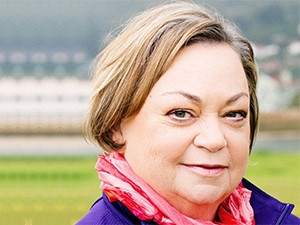
Government's muddling in the telecoms sector has been a hindrance rather than an accelerator, said Marian Shinn, Democratic Alliance member of Parliament and telecoms and postal services shadow minister.
Shinn delivered a keynote at the sixth annual Fibre-to-the-Home (FTTH) Council Africa Conference in Cape Town yesterday.
The World Economic Forum 2016 Network Readiness Index, which assesses a country's preparedness to reap the benefits of emerging technologies and capitalise on opportunities presented by the digital revolution, shows SA has risen in 12 months from 75th position on the list to 65th.
"That's an improvement of 10 places in one year, despite our government's muddling in the sector having been a hindrance rather than an accelerator."
Shinn referred to "the most obvious potholes" in South Africa's information highway presenting enormous challenges. She listed these as the legislative and administrative quagmire caused by the split between the Department of Communications and Department of Telecommunication and Postal Services; the stalling of the change to broadcast digital migration policy; the halting of production of the five million government-sponsored set-top boxes for low income households because of perceived irregularities in the procurement process; the two-year delay in the publication of the rapid deployment guidelines only so it could be included in the white paper; and the delay of policy on the release of high-demand spectrum so necessary to meet the demand for wireless broadband services.
She added the biggest pothole of all was the lack of government funding to deliver these grand plans.
"If the private sector can boost our international ranking in just one year as it has, imagine what could be achieved if government was on our side, focused on making our lives easier," said Shinn.
Imagine what could be achieved if government was on our side, focused on making our lives easier.
Marian Shinn
The potential for broadband in Africa is huge, she said. In the past five years, the continent has seen the fastest growth in telecoms services worldwide. This has been driven by the growth in the number of mobile phone subscribers. In Sub-Saharan Africa, revenue from mobile services reached $35 billion in 2011, equating to about 3% of GDP. Two years later, according to the GSM Association, the contribution of mobile markets to the region's GDP had risen to 5.4%.
The World Bank estimates the potential transformation effects of Internet access on the economy of Sub-Saharan Africa could account for 10% of the region's GDP in 2025.
Shinn emphasised the importance of seeing broadband coverage to impoverished communities in the face of ever-increasing rural-to-urban migration, adding that the digital divide in SA is growing ever-wider.
"The digitally excluded are being denied the benefits of online learning, social services, shopping, social involvement and employment opportunities - all the basics the connected take for granted.
"We are quick to quote the economic benefits to GDP to implementing broadband policy. But has anyone calculated the cost of wasted human potential through digital exclusion? South Africa must not repeat the mistakes of the past that marginalised most of our people. I urge the ICT industry to stretch the capabilities of its commercial endeavours to include the poor marginalised communities. We cannot afford not to do so."
Share